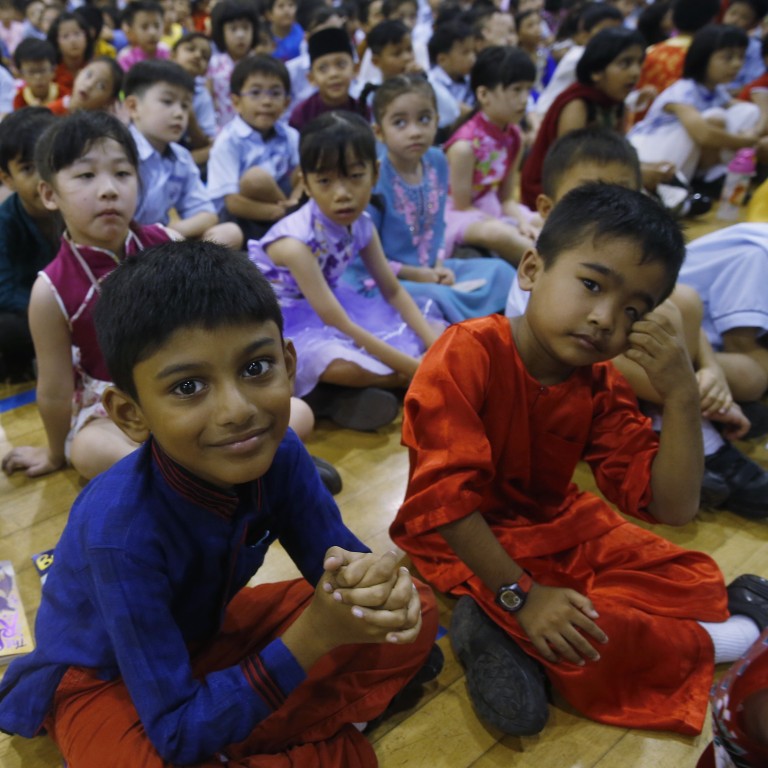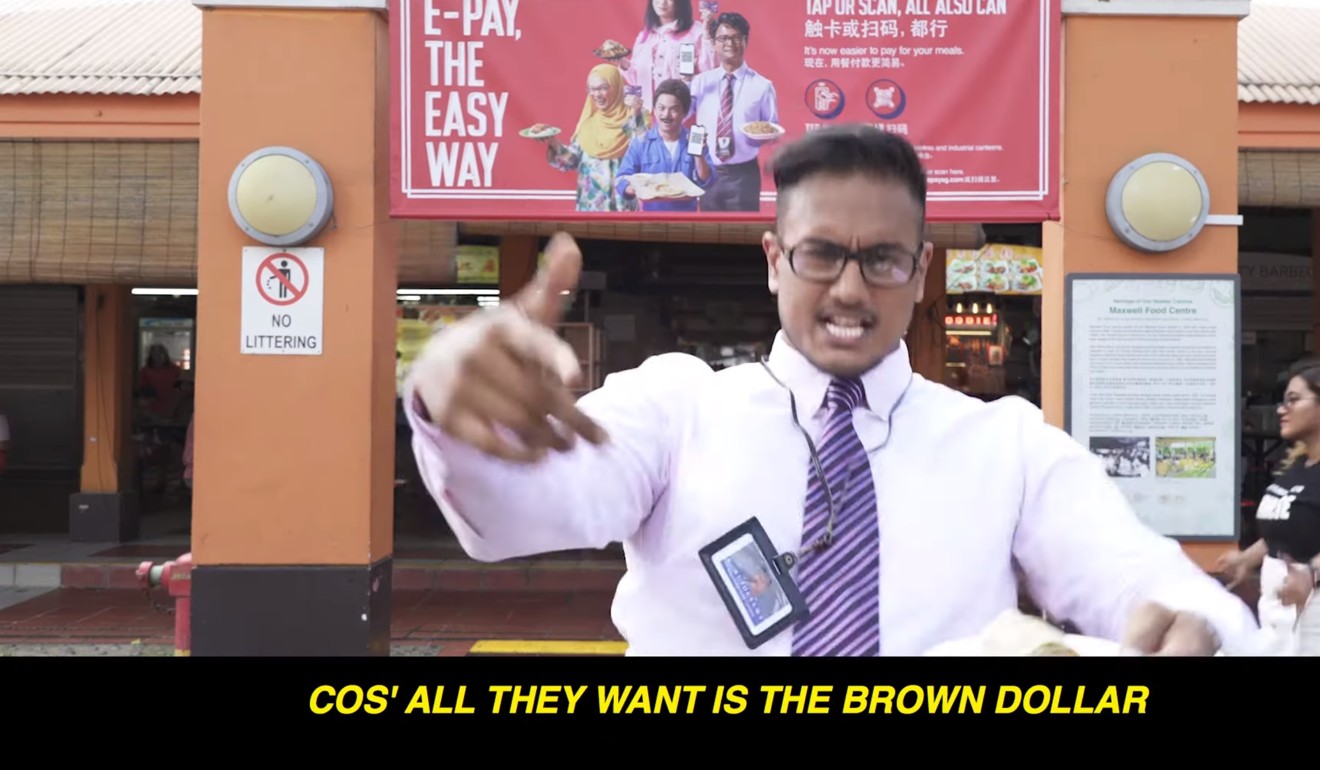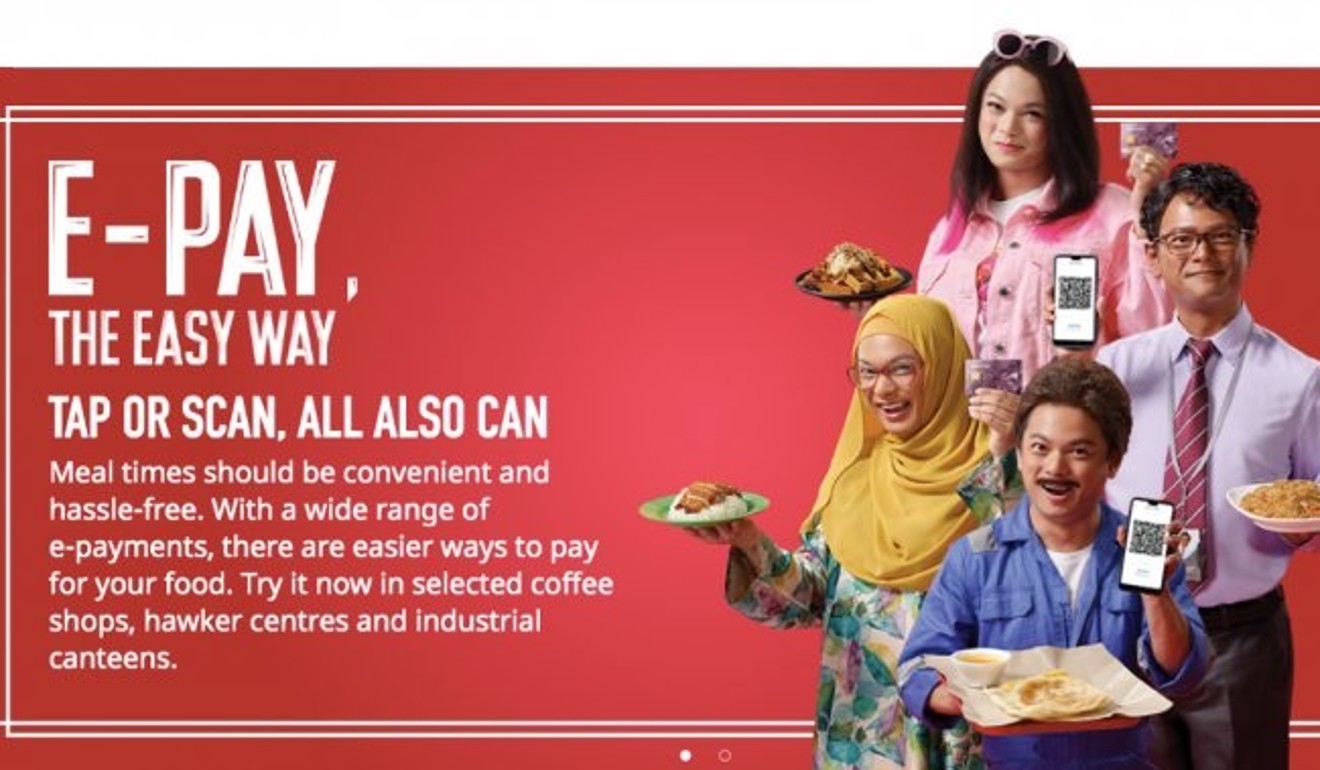
The race riots remain Singapore’s biggest bogeyman. It’s time to have an honest discussion about prejudice
- A controversy in Singapore over a brownface ad and a provocative rap video has highlighted divisions in the island state, even though the government goes to great pains to promote racial harmony
Two years ago, I was invited to a public panel to discuss writing about minority characters in Singapore fiction. “We can’t talk honestly about race though. How to fill the time?” I asked another writer. He replied, “We’ll just get the conversation started and then the race riots will take over.”

The danger of the video, according to the government, was its incitement to violence against the majority Chinese community. Preeti Nair’s middle finger to the camera was apparently powerful enough to cause a riot.
It didn’t matter that the e-payment ad had also made a mockery of minorities: according to the official rule book, rap lyrics like “No matter who we choose, the Chinese man win” are seditious statements about systemic racism in Singapore, while brownface is merely regarded with “distaste”.
View from Singapore: Hong Kong is a city tearing itself apart
By the time the Ministry of Home Affairs discovered and slammed the statement’s satirical intent, the joke had already landed.
The Nair siblings’ sly resistance exposed the authorities’ lack of savvy when it comes to artistic intent and expression. Context has never been the forte of censors – there is too much complexity, when the job depends on clear-cut definitions.

A local playwright said that in the 1990s, he had to submit his scripts to the police for vetting. I can only imagine a friendly uniformed officer, on a slow neighbourhood watch day, sitting at his desk checking manuscripts against a list of forbidden words (“who’s on poetry duty tomorrow?”).
The unprintable truth about news in Singapore
Preeti, who posts YouTube videos under the name Preetipls, said: “The content on Preetipls has always been parodies, satire, sarcasm and unconventional ways to discuss social causes including Racial Harmony.” Her brother Subhas said: “My work, out of context, can be imbued with any interpretation and alleged intention.”
Although the authorities warn that talking about race will lead to violence, what their response to this situation really reveals is their insensitivity to nuance. They became unwitting participants in a real-time performance that acted as a more powerful catalyst for conversations about race than any riot would have.
As the Nair siblings stated in their second apology: “While our work did bring about a discussion of race in Singapore, we know it did not create divisions. If anything, it revealed them.” What Singapore does with these revelations will be the true test of its citizens’ ability to coexist.
Balli Kaur Jaswal's novel Sugarbread, a multigenerational story about racism in Singapore, was shortlisted for the Singapore Literature Prize in 2018

